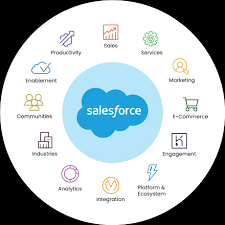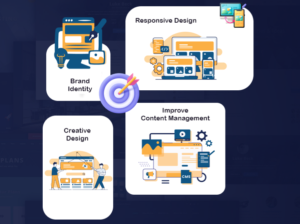How Long Does a Salesforce Implementation Project Typically Take?
Implementing Salesforce can transform your business operations, streamline processes, and improve customer relationships. However, the time required for a Salesforce implementation project varies based on several factors. If you’re considering this powerful CRM platform, understanding the timeline helps set realistic expectations. In this guide, we’ll explore the factors influencing the implementation period, the typical duration, and the importance of working with a Salesforce implementation consultant. We’ll also discuss how the Salesforce implementation cost may vary depending on the project’s complexity.
What is Salesforce Implementation?
Salesforce implementation involves configuring, customizing, and integrating Salesforce CRM into your business environment. It requires proper planning, execution, and testing to align the platform with your company’s goals. The implementation process includes:
- Identifying business requirements
- Customizing Salesforce applications
- Integrating with existing systems
- Training end-users
- Ensuring data security and compliance
The timeline can differ based on the organization’s size, data complexity, and customization needs.
Factors Affecting the Timeline of Salesforce Implementation
Several factors influence how long a Salesforce implementation project takes. Here are the primary factors to consider:
- Business Requirements and Scope
The more complex your requirements, the longer the implementation will take. A small business with basic CRM needs may complete the implementation within a few weeks, while larger enterprises with advanced customization can take several months.
- Customization and Configuration
Salesforce offers extensive customization options. While basic configurations might take less time, complex customizations like developing custom apps, automation workflows, or advanced reports can extend the timeline.
- Data Migration
Transferring data from legacy systems to Salesforce requires significant time, especially if the data needs cleaning and validation. The volume and quality of data also impact the implementation duration.
- Integration with Other Systems
Salesforce often needs integration with other business tools like ERP systems, marketing platforms, or e-commerce solutions. The complexity of these integrations can add more time to the project.
- User Training and Adoption
Training your team is crucial for successful implementation. The time invested in training depends on the number of users and the level of Salesforce customization.
- Engaging a Salesforce Implementation Consultant
Hiring an experienced Salesforce implementation consultant can streamline the process. Consultants bring expertise, proven strategies, and tools that help avoid common pitfalls, potentially reducing the implementation time.
Typical Timeline for Salesforce Implementation
Although every implementation is unique, here’s a general timeline for Salesforce implementation based on project size and complexity:
- Small-Scale Implementation (4 to 6 Weeks)
For small businesses or startups with straightforward CRM needs, a basic Salesforce setup typically takes around 4 to 6 weeks. This includes standard configuration, limited data migration, and basic training.
- Medium-Scale Implementation (2 to 4 Months)
Medium-sized businesses with moderate customization and integrations may require 2 to 4 months. This stage involves more data migration, custom workflows, and user training.
- Enterprise-Level Implementation (6 Months or More)
Large enterprises with complex workflows, multiple integrations, and custom applications might need 6 months or longer. Extensive testing, training, and phased rollouts contribute to the longer timeline.
The Role of a Salesforce Implementation Consultant in Reducing Timeline
Partnering with a Salesforce implementation consultant can significantly influence the implementation timeline. Consultants possess in-depth knowledge of Salesforce’s capabilities and can:
- Conduct detailed requirement analysis
- Recommend best practices and solutions
- Manage project timelines effectively
- Offer tailored training programs
Their expertise helps businesses avoid costly mistakes and streamline the entire implementation process.
How Does Salesforce Implementation Cost Affect the Timeline?
Understanding the Salesforce implementation cost is essential for planning your project. The cost varies depending on factors like project complexity, customization needs, and consultant fees. Here’s how cost considerations impact the timeline:
- Higher Budgets Enable Faster Implementation: With more resources, businesses can hire experienced consultants and dedicate more staff to the project.
- Cost Constraints May Delay Progress: Budget limitations might lead to phased implementations, extending the overall timeline.
Strategies to Accelerate Your Salesforce Implementation
While Salesforce implementation requires careful planning, you can adopt strategies to expedite the process:
- Define Clear Requirements Early
Start by documenting your CRM requirements and goals. A clear roadmap helps avoid confusion and rework during implementation.
- Engage Stakeholders from the Start
Involve key stakeholders early to ensure alignment and smooth decision-making throughout the project.
- Choose the Right Salesforce Implementation Consultant
Work with a certified Salesforce implementation consultant who has experience with similar businesses. Their insights and tools can speed up the process.
- Allocate Sufficient Resources
Assign a dedicated project team with the necessary skills and availability to support the implementation.
- Invest in User Training
Train your team effectively to reduce post-implementation disruptions and maximize Salesforce adoption.
Conclusion: Plan Wisely for a Successful Salesforce Implementation
The timeline for a Salesforce implementation project can range from a few weeks to several months, depending on factors like customization, data migration, and integrations. Working with a Salesforce implementation consultant helps streamline the process and avoid potential pitfalls. Additionally, understanding the Salesforce implementation cost and its impact on the timeline ensures better financial and operational planning. By preparing well and involving the right experts, you can achieve a smooth, efficient Salesforce implementation tailored to your business needs.














Post Comment